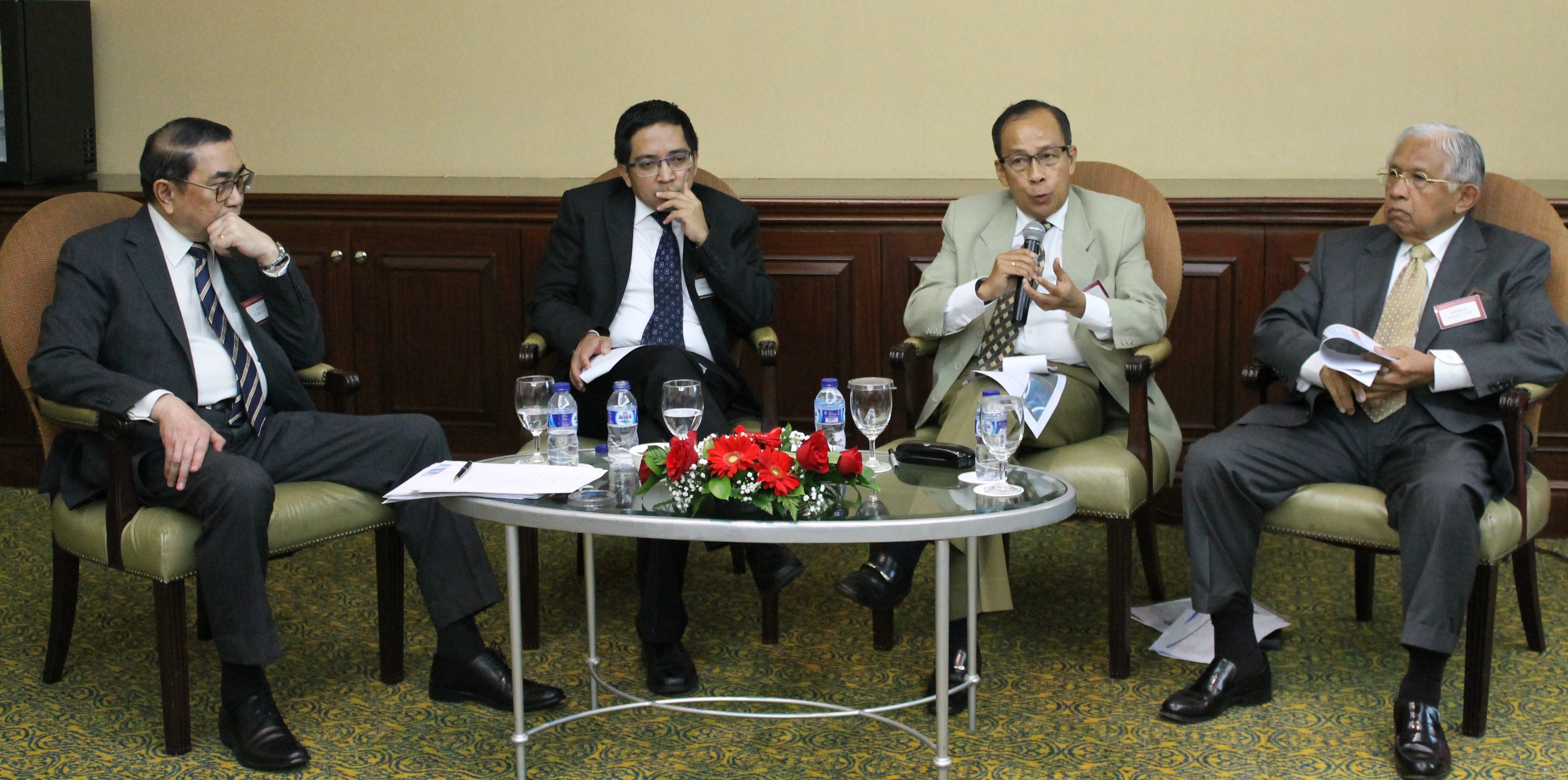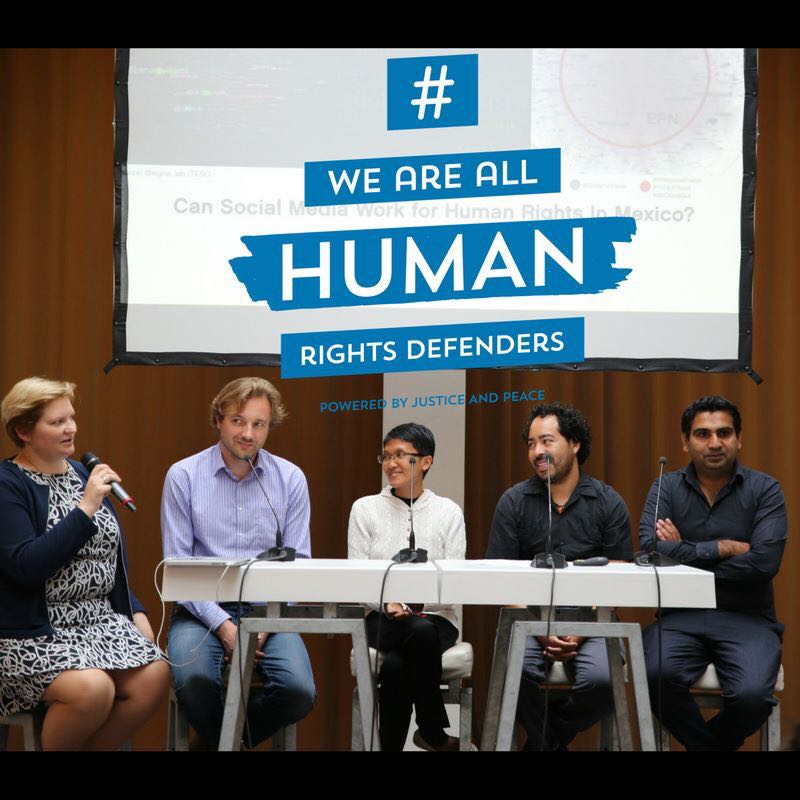Indonesia in 2015: Politically and Economically, What Lies Ahead?
A brief note from the KIROYAN PARTNERS’ CEO Breakfast Meeting, July 30, 2015

A breakfast meeting with Noke Kiroyan, Dr. Philips J. Vermonte, Lieutenant General (ret.) Agus Widjojo and Dr. Anwar Nasution
After almost one year under the Jokowi administration, Indonesia has experienced enormous changes. Political standoffs have put the administration’s competence in question, and economic worries have mounted pressures for an improved management of the administration.
Presenting three highly regarded experts of Indonesian politics and the economy, our last CEO breakfast looked into the fundamental challenges facing Jokowi’s leadership and offered near-term outlook and a set of recommendations. This brief is our summary of the discussion.
Jokowi’s first nine months: the political landscape and key challenges
Though Indonesia has cultivated a competitive electoral democracy with multiple parties, oligarchs still dominate the system. There are indeed more “veto players” than ever, which ensures a more balanced policy-making process, but also leads to prolonged debates.
In the 2014 election, the ruling Indonesian Democratic Party of Struggle (PDI-P) only garnered 19.5% of the total 560 seats — far from the majority. Jokowi’s main challenge lies in leading a minority government faction.
Modest electoral and leadership strength
Despite initially high expectations, Jokowi’s approval ratings are much lower than SBY’s were in the past. His weak strategies likely stem from his lack of experience in major political landscapes, as well as the Red-and-White Coalition (KMP) and the KMP-dominated factions in the House of Representatives (DPR), who are working against him. With Jokowi’s attempt to solidify his position through the creation of the Presidential Staff Office and many volunteer networks, the already-divided group is becoming even more skeptical.
Faults in Indonesian politics
In a healthy electoral democracy, voters evaluate their leaders through elections. In Indonesia, politicians secure power through rigorous lobbying and rampant corruption, and are not influenced as heavily by the people. This leads to the formation of private, issue-based coalitions, which give Jokowi more breathing room, but are often choked by bureaucratic disagreements. Moreover, the architecture of Indonesian politics is largely characterized by absence of internal democracy within the political parties. This renders difficulty for Jokowi as he often faces hierarchical confinement to amass support from his own party.
Recent economic developments and near-term outlook
Economic Challenges
The Indonesian economy has been in decline since 2011 due mainly to a subdued global economy and the end of commodity price boom of the country’s exports. These challenges, coupled with the depreciation of the Rupiah and rising interest rates, could increase the number non-performing loans and the erosion of capital within the banking system, present difficulties in servicing foreign debts for corporations with high short-term borrowings, and lead to fragility in domestic bond and SBI (Bank Indonesia certificates) markets, where 38% of the liquidity comes from short-term capital inflows.
Policy reforms and their shortcomings
Jokowi’s reform policies, however well meaning, are inadequate. While the best solutions would include privatizing SOEs and shifting the surplus labor force from agriculture and other non-formal sectors to more productive, export-oriented manufacturing, he instead proposed the following solutions:
- Eradication of the fuel subsidy
This reform is arguably Jokowi’s most noteworthy economic accomplishment thus far, as he’s become the first Indonesian president to fully remove the fuel subsidy within the first month of his presidency.
- Streamlining of business licensing system
So far, the implementation of this reform focuses more on businesses at the central level. There is no real progress for provincial companies.
- Infrastructure development plan
By doubling the capital budget allocation in 2015, Jokowi hopes to improve the country’s infrastructure. On paper, this is a sound policy, but because it hasn’t been fully implemented, it’s difficult to draw conclusions about its impact.
- Granting free visa for tourists from 30 countries
Meant to stimulate tourism growth, shortcomings in immigration and customs services at entry points, airports, and seaports render this reform ineffective.
- Capital injection to state-owned enterprises (SOEs)
Considering the fact that Indonesian SOE’s cannot compete with enterprises from Singapore and Malaysia, this policy should be accompanied by a more comprehensive reform that improves how Indonesian SOEs are managed.
How should we address these challenges?
A firm commitment to stronger policies and more comprehensive economic reform will place Indonesia and its government on the right track. Here’s how to get there:
- Focus on improving the vision of policies
- Improve management of the administration and rework misdirected policies before they damage the country’s infrastructure and political institutions
- Urge political parties to adopt democratic values
- Maximize FDI to create employment at home, grow the badly needed capital and technology and open links to global supply chain
- Create incentives for greater exports and closely manage the exchange rate, increase investor confidence, build infrastructure, and deregulate trade
***



